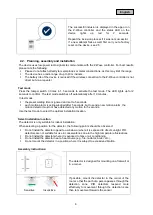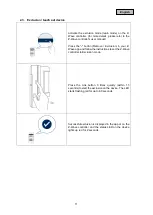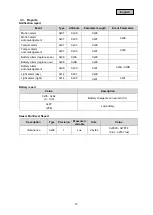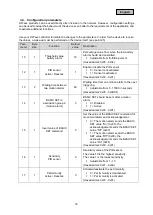
9
English
The successful inclusion is displayed in the app or on
the Z-Wave controller and the status LED on the
device
lights
up
red
for
2
seconds.
Repeat the inclusion process if it was not successful.
If a new attempt fails as well, first carry out a factory
reset on the device, see 2.5.
2.2. Planning, assembly and installation
The device uses low-power radio signals to communicate with the Z-Wave controller. For best results,
please note the following:
Please do not attach directly to metal planes or metal constructions, as this may limit the range.
The device has a radio range of up to 40 m indoors.
The battery life of the device is reduced if the wireless connection to the Z-Wave controller is not
direct but via a repeater.
Test mode
Press the tamper switch 3 times in 1.5 seconds to activate the test mode. The LED lights up for 2
seconds to confirm. The test mode switches off automatically after 10 minutes.
In test mode
the preset waiting time is ignored and set to 5 seconds.
each motion alarm is acknowledged after 5 seconds, but to send a new motion alarm, the
motion detector must not have detected any motion for 5 seconds.
Use the test mode to select the optimal installation location.
Select installation location
The detector is only suitable for indoor installation.
When selecting a position for the detector, the following points should be observed:
Do not install the detector opposite a window or where it is exposed to direct sunlight. PIR
detectors are not suitable for use in conservatories due to the high temperature fluctuations.
Do not install the detector where it is exposed to fans or air conditioning.
Do not install the detector near a heat source (e.g. fire, radiator, boiler, etc.).
Do not mount the detector in a position where it is subject to excessive vibration.
Assembly instructions:
The detector is designed for mounting on a flat wall or
in a corner.
If possible, mount the detector in the corner of the
room so that the path of a person passes through the
detection zone. PIR detectors respond more
effectively to movement through the detection zone
than to movement towards the sensor.
Sensitive
Insensitive




































